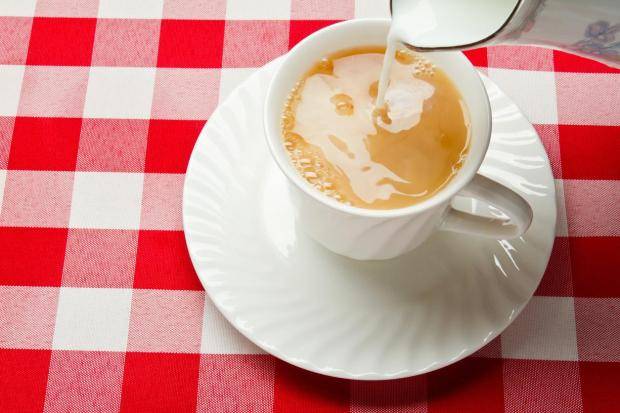Drinking hot tea daily may reduce glaucoma risk: study
Sat 16 Dec 2017, 13:10:04

Drinking a cup of hot tea at least once a day may significantly lower risk of developing glaucoma - a serious eye condition, a study suggests.
However, drinking decaffeinated and caffeinated coffee, decaffeinated tea, iced tea and soft drinks do not seem to make any difference to glaucoma risk, said researchers from the University of California in the US.
Glaucoma causes fluid pressure to build up inside the eye (intraocular pressure), damaging the optic nerve.It is one of the leading causes of blindness worldwide, and currently affects 57.5 million people, and is expected to increase to 65.5 million by 2020, according to the study published in the journal BMJ.
Previous research suggests that caffeine can alter intraocular pressure, but no study so far has compared the potential impact of decaffeinated and caffeinated drinks on glaucoma risk.
The
researchers looked at data from the 2005-2006 National Health and Nutrition Examination Survey (NHANES) in the US.Among the 1678 participants who had full eye test results, including photos, 84 (5 percent) adults had developed the condition.
researchers looked at data from the 2005-2006 National Health and Nutrition Examination Survey (NHANES) in the US.Among the 1678 participants who had full eye test results, including photos, 84 (5 percent) adults had developed the condition.
They were asked how often and how much they had drunk of caffeinated and decaffeinated drinks, including soft drinks and iced tea, over the preceding 12 months, using a questionnaire.
Compared with those who did not drink hot tea every day, those who did had a lower glaucoma risk, the data showed.
After taking account of potentially influential factors, such as diabetes and smoking, hot tea-drinkers were 74 percent less likely to have glaucoma.
However, no such associations were found for coffee - caffeinated or decaffeinated - decaffeinated tea, iced tea or soft drinks.
No Comments For This Post, Be first to write a Comment.
Most viewed from Health
AIMIM News
Latest Urdu News
Most Viewed
May 26, 2020
Do you think Canada-India relations will improve under New PM Mark Carney?
Latest Videos View All
Like Us
Home
About Us
Advertise With Us
All Polls
Epaper Archives
Privacy Policy
Contact Us
Download Etemaad App
© 2025 Etemaad Daily News, All Rights Reserved.






























